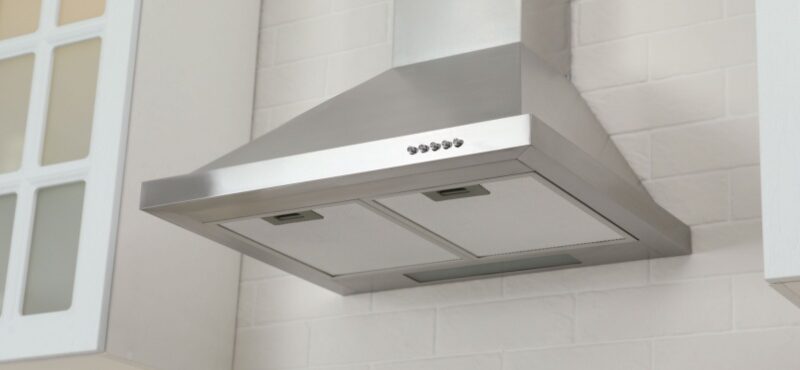Welcome to Tops Kitchen Cabinet’s guide on the importance of proper kitchen ventilation. While it’s easy to focus on the aesthetics of your kitchen—choosing the perfect cabinets, countertops, and appliances—ventilation is a critical element that is often overlooked. Without adequate ventilation, your kitchen can quickly become a breeding ground for unwanted odors, excess moisture, and airborne particles that can compromise the longevity of your kitchen surfaces. Whether you’re planning a new kitchen or looking to improve your existing setup, understanding the role of ventilation is key to ensuring your kitchen remains a healthy and welcoming space for years to come.
Why Kitchen Ventilation Matters
Improving Air Quality: The kitchen is one of the busiest areas in any home, with cooking activities that generate heat, steam, smoke, and odors. Without proper ventilation, these elements can linger, leading to poor indoor air quality. Effective kitchen ventilation removes airborne contaminants, ensuring that the air in your home remains clean and fresh. This is especially important in preventing respiratory issues and allergies caused by prolonged exposure to cooking fumes.
Enhancing Comfort: A well-ventilated kitchen is a more comfortable space for cooking and socializing. Proper ventilation helps regulate the temperature by removing excess heat generated during cooking. This prevents your kitchen from becoming uncomfortably hot, especially during the summer months. Additionally, by eliminating lingering cooking odors, ventilation ensures that your kitchen and surrounding areas remain pleasant for you and your guests.
Protecting Your Cabinets and Countertops
One of the primary concerns in the kitchen is moisture. Cooking activities, especially boiling and steaming, release a significant amount of moisture into the air. Without adequate ventilation, this moisture can accumulate on your cabinets and countertops, leading to potential damage. Over time, excessive moisture can cause wooden cabinets to warp, swell, or develop mold and mildew. Countertops, particularly those made of natural stone like granite or marble, can also suffer from moisture-related issues such as staining or etching.
Proper ventilation helps to expel moisture from the kitchen, keeping your cabinets and countertops dry and preventing long-term damage. Installing a quality range hood or exhaust fan is essential for capturing and removing moisture-laden air before it can settle on your kitchen surfaces.
Kitchens are naturally prone to heat buildup, especially when cooking on stovetops or using ovens. Prolonged exposure to high temperatures can cause damage to your cabinets and countertops. For example, heat can cause the finish on wooden cabinets to deteriorate, leading to discoloration or peeling. Similarly, heat can weaken the adhesive used to secure laminate countertops, causing them to lift or bubble.
By investing in proper kitchen ventilation, you can effectively manage heat levels, protecting your cabinetry and countertops from the adverse effects of excessive heat. A good ventilation system helps to quickly remove hot air from the kitchen, maintaining a stable temperature that is less likely to cause damage.
Cooking produces grease and oil particles that can easily become airborne. Without proper ventilation, these particles can settle on your cabinets, countertops, and other kitchen surfaces, creating a sticky residue that attracts dust and dirt. Over time, grease buildup can be difficult to clean and may even damage the finish of your cabinets or stain your countertops.
A high-quality range hood with a strong exhaust system is essential for capturing grease particles before they have a chance to settle. Regular cleaning of your ventilation system’s filters is also important to ensure that it continues to operate effectively, keeping your kitchen surfaces free from grease buildup.
Best Practices for Kitchen Ventilation
Choosing the Right Range Hood: The range hood is the centerpiece of any kitchen ventilation system. When choosing a range hood, consider the size of your kitchen and the type of cooking you do. A range hood should be powerful enough to effectively capture and remove heat, moisture, smoke, and grease from the air. Look for a model with an exhaust fan that vents to the outside, as this is the most effective way to remove contaminants from your kitchen.
Regular Maintenance: To keep your kitchen ventilation system running smoothly, regular maintenance is key. Clean the filters in your range hood or exhaust fan regularly to prevent grease buildup and ensure optimal performance. Additionally, inspect the ventilation ducts periodically to ensure that they are not blocked or damaged.
Supplementing with Additional Ventilation
In addition to your range hood, consider supplementing your kitchen ventilation with other solutions such as ceiling fans, wall-mounted fans, or open windows. These additional measures can help improve airflow and keep your kitchen well-ventilated during intense cooking sessions.
Protecting Your Kitchen with Proper Ventilation
Proper kitchen ventilation is essential for maintaining a comfortable and healthy cooking environment, as well as protecting your valuable cabinets and countertops. By preventing moisture damage, reducing heat exposure, and minimizing grease buildup, a well-ventilated kitchen ensures that your kitchen investments remain in pristine condition for years to come. At Tops Kitchen Cabinet, we’re committed to helping you create a kitchen that’s both beautiful and functional. Visit our website to contact us and explore our range of products and solutions for a well-ventilated, stylish kitchen.

